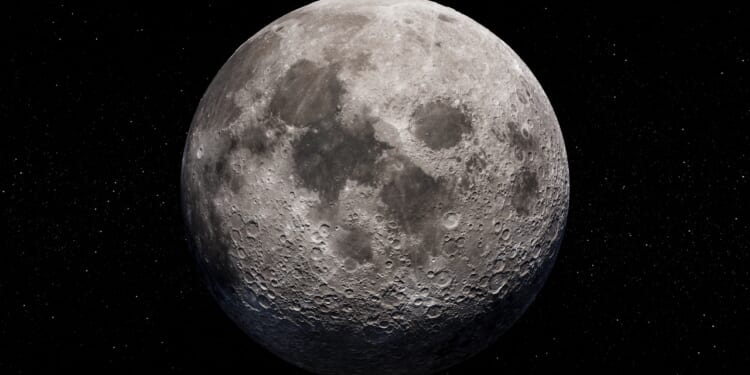Petty infighting between SpaceX and NASA is hampering America’s space efforts—and giving China’s growing space program a shot at outpacing them both.
NASA recently announced that both SpaceX and Blue Origin have submitted new moon mission proposals to get American astronauts to the moon faster than what was the original timeline, which has been massively delayed over the years due to politics and budgetary reasons. It is likely that SpaceX, if given full resources and backing of a NASA that is borderline hostile to SpaceX for political reasons, would get Americans back to the moon long before Chinese taikonauts ever set foot there.
SpaceX is developing its heavy-lift vehicle and lunar lander variant via the Starship architecture for lunar missions as part of NASA’s Artemis program. NASA selected SpaceX to provide the human lunar landing system for Artemis. The innovative space firm is launching missions to the moon to support lunar science and technology development.
When Space Exploration Meets Politics
Elon Musk’s SpaceX has a proven capability in launching heavy rockets, and has multiple successes doing so. But Musk has run afoul of the powers that be. Acting NASA Director (and current secretary of transportation) Sean Duffy appears committed to not relying on SpaceX, as his predecessors had come to do.
While it’s always smart to diversify, Duffy should pick his battles better. That’s because trying to rely on less experienced private space startups to beat the Chinese to the moon, when the window to do so is very small, is a misallocation of critical and finite resources.
Plus, neither Duffy nor NASA’s leadership has clearly defined a timeline and a set of objectives undergirding the return mission to the moon. This, too, has needlessly complicated America’s quest for returning American boots to the moon.
Meanwhile, there’s America’s number one geopolitical competitor, China. Sure, China doesn’t have the launch ecosystem that the Americans do. But the Americans are not in any significant way maximizing their advantages in the strategic high ground of space. The Chinese, on the other hand, are working feverishly to conquer space.
As America Dithers, China Is on the Move
In between bouts of Chinese taikonauts having a full-blown cookout on their modular space station and announcements that Chinese taikonauts will first land on the moon by 2035, China’s space agency is also showcasing new magnetic levitation rotating ejection system that can throw mined Helium-3 to the Earth from the lunar surface—where a Chinese mining colony is expected to be operating at some point after 2035.
Even with the Americans talking about placing a nuclear reactor on the moon to power a future American colony there, and with NASA working toward an ambiguous goal of returning Americans to the lunar surface, the Chinese are creating a real actionable strategy for actually conquering the lunar surface—and exploiting all the resources there unapologetically—in ways the Americans simply cannot and will not talk about.
Lack of planning, especially in complex spaceflight operations like a return trip to the moon, will ensure the Americans never get there—at least not before the Chinese get there in force and annex all the best real estate. Even in the critical domain of affordable launches, made possible by reusable rockets of the kind that SpaceX pioneered, China is starting to catch up—mostly by ripping off SpaceX designs. Where America innovates, though, it simply refuses to follow-up with an all-of-society approach the way that the Chinese are doing.
Only SpaceX Can Take America Back to the Moon
Anyway, China’s lunar program has been active for years and made several firsts—such as being the first to land a manmade object on the fabled “dark side” of the moon. Sample-return missions of the valuable lunar surface by Chinese rovers have proven that there’s a veritable bonanza of exploitable rare earth minerals that Beijing very badly wants to capture and make use of long before the Americans can even snap on their space boots.
Given the level of distraction of NASA, SpaceX is the only American firm with the technical capabilities to definitely beat the Chinese back to the moon. What’s lacking is the strategic vision and, therefore, resource allocation and political leadership on the part of America. Even though China is still developing their technological capabilities in this domain, they have a real will to win this race and dominate.
At this rate, unless the American side actually comes together and works toward the goal of dominating the Earth-Moon system before the Chinese can with a seamless public-private cooperative framework, China will definitely defeat the Americans in the race to capture the moon and its bountiful wealth of natural resources.
About the Author: Brandon J. Weichert
Brandon J. Weichert is a senior national security editor at The National Interest. Recently, Weichert became the host of The National Security Hour on America Outloud News and iHeartRadio, where he discusses national security policy every Wednesday at 8pm Eastern. He is also a contributor at Popular Mechanics and has consulted regularly with various government institutions and private organizations on geopolitical issues. Weichert’s writings have appeared in multiple publications, including The Washington Times, National Review, The American Spectator, MSN, and the Asia Times. His books include Winning Space: How America Remains a Superpower, Biohacked: China’s Race to Control Life, and The Shadow War: Iran’s Quest for Supremacy. His newest book, A Disaster of Our Own Making: How the West Lost Ukraine is available for purchase wherever books are sold. He can be followed via Twitter @WeTheBrandon.
Image: Shutterstock / JLStock.


















